A calling finally found: Why one Wilmington mother took on Chemours, DuPont
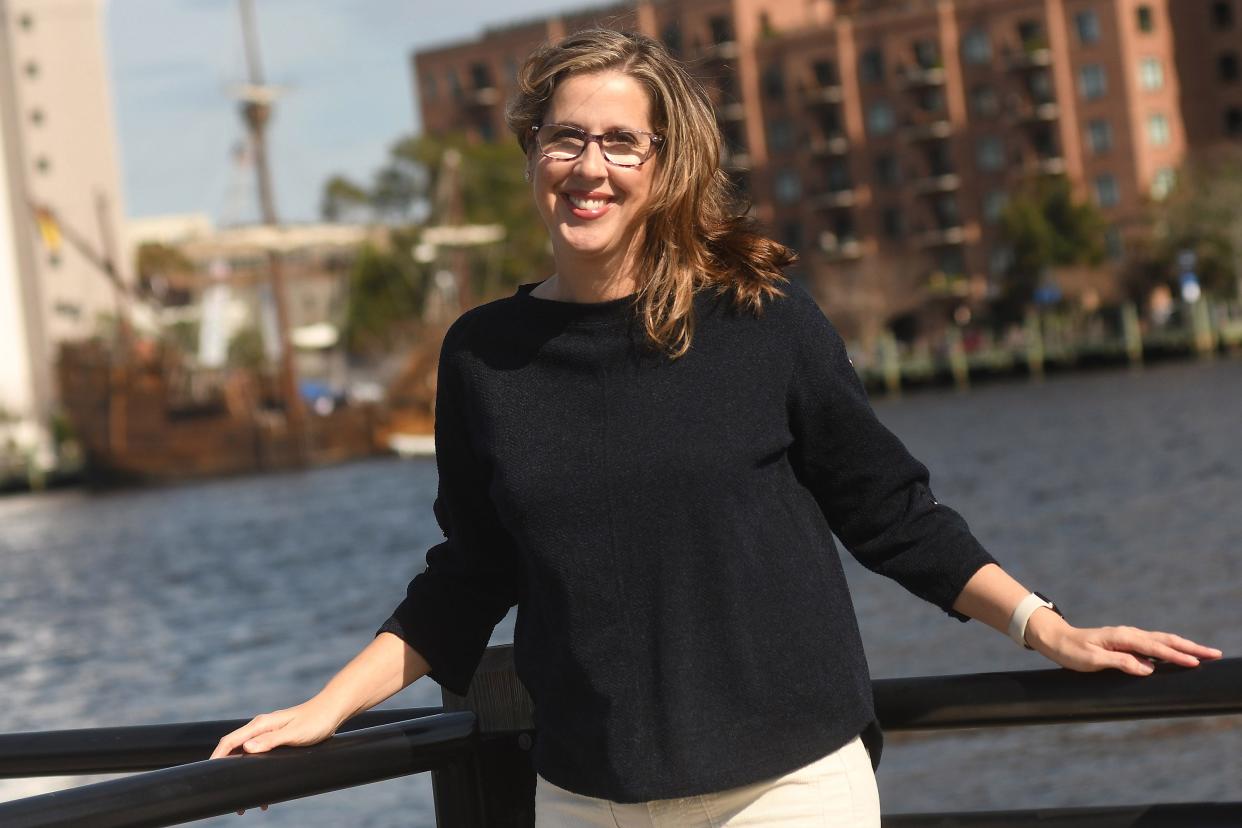
In the years before Emily Donovan, or anyone in the Cape Fear region, knew what PFAS were, the mother of two studied political science in college, spent 10 years in corporate marketing and after a self-described miracle, devoted herself to her faith and community.
“I always kind of felt like my path was such a random existence until Chemours,” Donovan said. “That’s when I realized these three skills have been incredibly useful.”
Donovan just so happened to have created the perfect skillset when reporting by the StarNews in 2017 revealed that two chemical giants, Chemours and DuPont, had been contaminating the area with toxic chemicals for nearly 40 years.
PFAS, or per- and polyfluorinated substances, are a group of chemical compounds manufactured at Fayetteville Works, a chemical plant outside Fayetteville. The facility sits on the banks of the Cape Fear River, and for more than 30 years Chemours and DuPont released untold amounts of PFAS compounds into the air, groundwater and river, contaminating the drinking water to approximately 500,000 North Carolinians.
Background:The GenX water crisis began 4 years ago. Here's a recap of the key moments so far
Fear erupted when the scope of the contamination was first revealed. There were many questions and few answers. The community needed someone with a detailed understanding of government to lobby elected officials, an eye for marketing to raise awareness and a knack for organizing to rally residents.
That’s when Donovan realized she was uniquely equipped to help. Since then, Donovan’s become a leading advocate, both here in North Carolina and nationally, on the issue of PFAS and the damage this relatively unknown class of chemicals can have on communities if not properly managed.
A miraculous gift
Donovan and her husband, David, moved to Leland in 2009 from Charlotte. Donovan was seven-months pregnant with the couple’s twin boy and girl at the time.
Donovan, who’s originally from Florence, South Carolina, had spent the past decade in corporate marketing. She worked for the world’s largest printing and coding technology companies.
“I put my career on hold to take care of the twins and adjust to living in a new town and all the things that come with that,” Donovan said.
Three years into the family’s time here at the coast, Donovan and her husband learned David had developed a brain tumor. David was slowly losing his vision, and after consulting with experts, doctors discovered a tumor in David’s skull base. They recommended David have the tumor removed immediately.

Months later, the couple returned to the surgeon’s office for a follow-up exam. Doctors cautioned the pair that David’s vision loss would likely be a permanent consequence of the tumor. Yet, when David’s vision was checked, it was perfect.
“David did the eye exam and he had perfect 20-20 vision,” Donovan said. “The surgeon was like, ‘That's not me. That's God.’”
The moment humbled Donovan. It felt as though her family had received a gift greater than they probably could ever understand or repay, she said.
“It really stuck with me and where I wanted to go in my life,” Donovan said. “I didn’t want to get back into the corporate world. I wanted to focus on ministry work.”
Fighting America’s chemical makers
It was while Donovan was working as the director of a youth ministry program in Wrightsville Beach that the GenX crisis began.
Donovan began to fear Chemours and DuPont could’ve contributed to her husband’s close call five years earlier, and the various ailments affecting the children in her youth program, she said. “Maybe this is it,” she thought.
“These students were just offering some really heavy prayers,” Donovan said. “Half of the kids’ parents or siblings had severe medical problems. I just remember thinking that it wasn't like this when I was growing up in South Carolina. It just didn't seem normal.”
Research from North Carolina State University have found PFAS compounds in the blood of many Wilmington and Fayetteville residents at quantities higher than the national average. Blood samples collected by NC State’s GenX Exposure Study indicated most of the 1,000 participants in the study face a greater chance of developing adverse effects such as cancer, issues with infant and fetal growth and other health conditions.
Health studies:NC residents face risk of health issues from GenX, PFAS exposure, new research shows
Donovan felt she had to get involved. “This is huge, and it requires attention,” she said. As a result, Donovan joined Clean Cape Fear as a co-founder in 2017, beginning her years’ long fight against Chemours and DuPont.
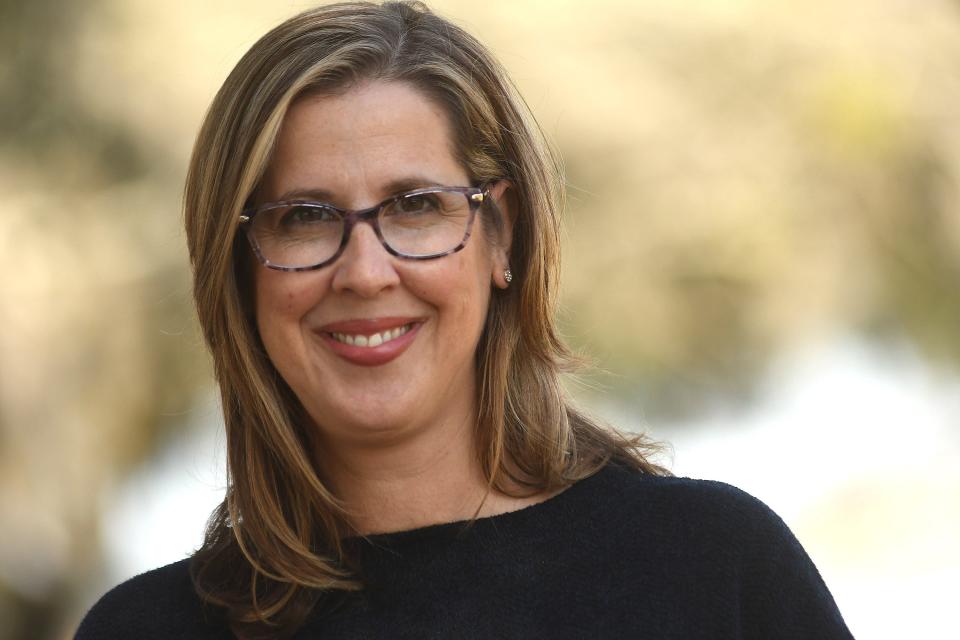
Clean Cape Fear is a grassroots community group working to protect the area from PFAS contamination and hold polluters and government agencies accountable. In the months after the crisis began, Clean Cape Fear worked to get credible information out to the public and provide filtration systems to schools so children could get access to drinking water that wasn’t tainted by PFAS.
“Our focus is to just get existing nonprofits, advocacy groups and elected leaders to come together and keep focus on this topic, to keep holding companies accountable, to make sure that we get help studies and sure that the responsible parties pay for the cleanup, not us,” Donovan said.
Before Chemours or DuPont, Donovan’s life was focused on her family. Taking her kids to school, setting up playdates and preparing meals – traditional housewife activities, Donovan said. These days she’s up late answering emails, attending meetings and conferences, testifying before committees, and doing just about anything she can to prevent the GenX Crisis from being forgotten.
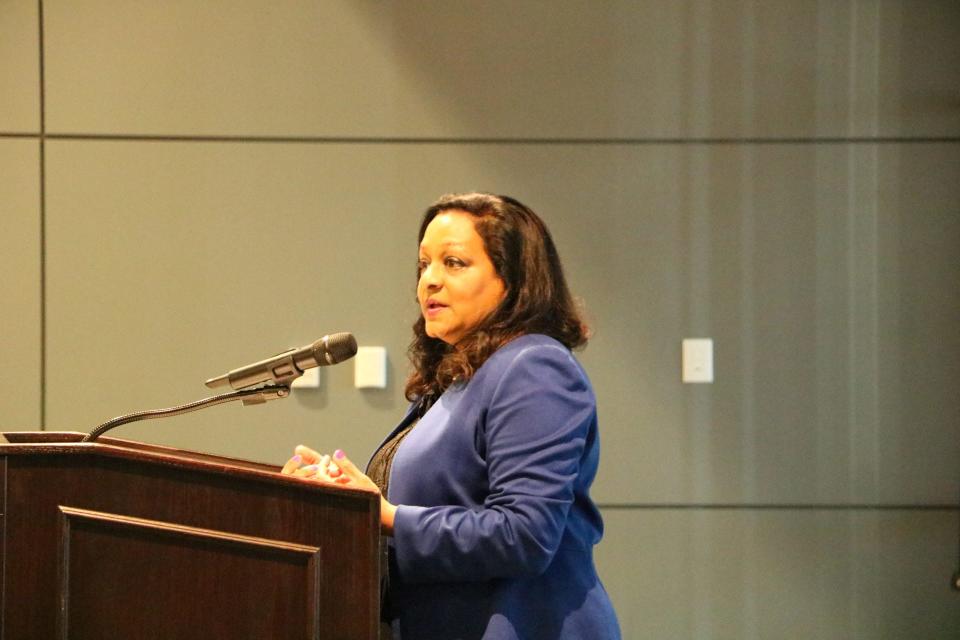
Helping plan a national conference on PFAS was among those many tasks this summer. Donovan was part of the planning team for the third National PFAS Conference, which was hosted in downtown Wilmington last summer. It was at that conference that the EPA announced new health advisories for GenX and a small number of other PFAS which tainted the Cape Fear River not far from where the conference was taking place.
“That was a full circle moment to go from five years ago sitting in my house going holy cow what does this mean to having the EPA actually unveil health advisories in this town," Donovan said.
Keeping the pressure on
The fight to bring the GenX crisis under control is only just beginning. It took two years for the state to get a court order to force Chemours to start testing and providing safe drinking water to those with contaminated drinking water wells, in addition to various improvements they were forced to make to the Fayetteville Works facility.
Well testing is ongoing and Chemours is still working to control releases.
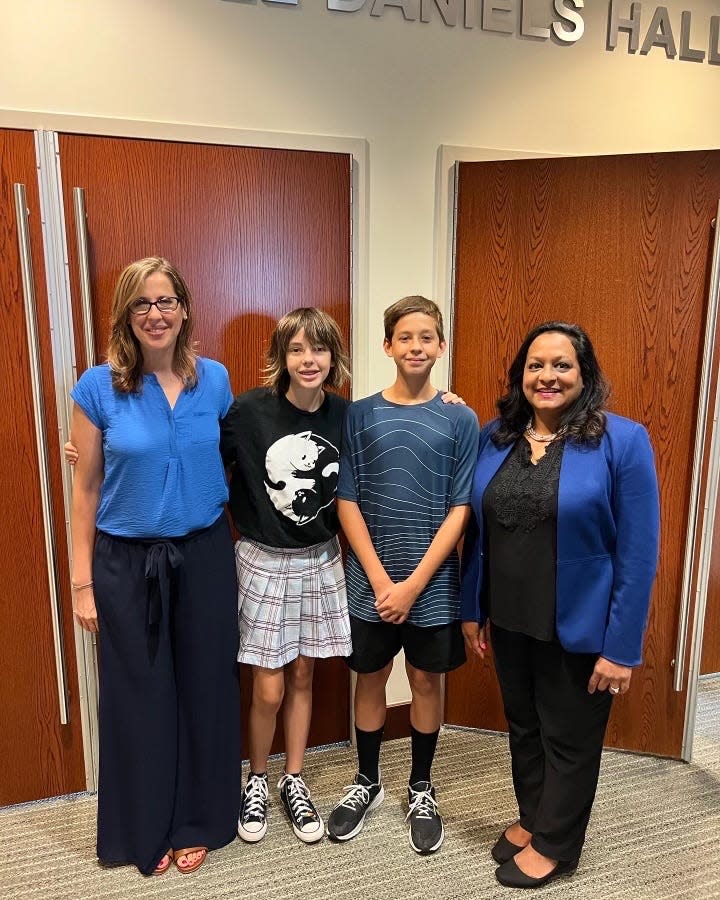
Beyond the consent order, multiple lawsuits by the state of North Carolina, public utilities, municipalities and various class-action lawsuits have been filed against Chemours and DuPont. However, any damages, if they’re awarded, could be years away.
Chemours required action:Chemours expands PFAS testing program to Wilmington area. Here’s what it will look like
More:GenX Water Crisis: Public says no to Chemours' expansion plan, anger toward company grows
“I have to remind myself that this is not a sprint, this is definitely a marathon even though I frickin’ hate running,” Donovan said.
“Where I do find sustainment through this is reminding myself to look at where we actually have come even though five years feels like a long time,” Donovan said. “We have changed the narrative on discussions at the national level about PFAS. We're no longer just talking about PFOA or GenX, we're actually talking about the whole class of chemistry.”
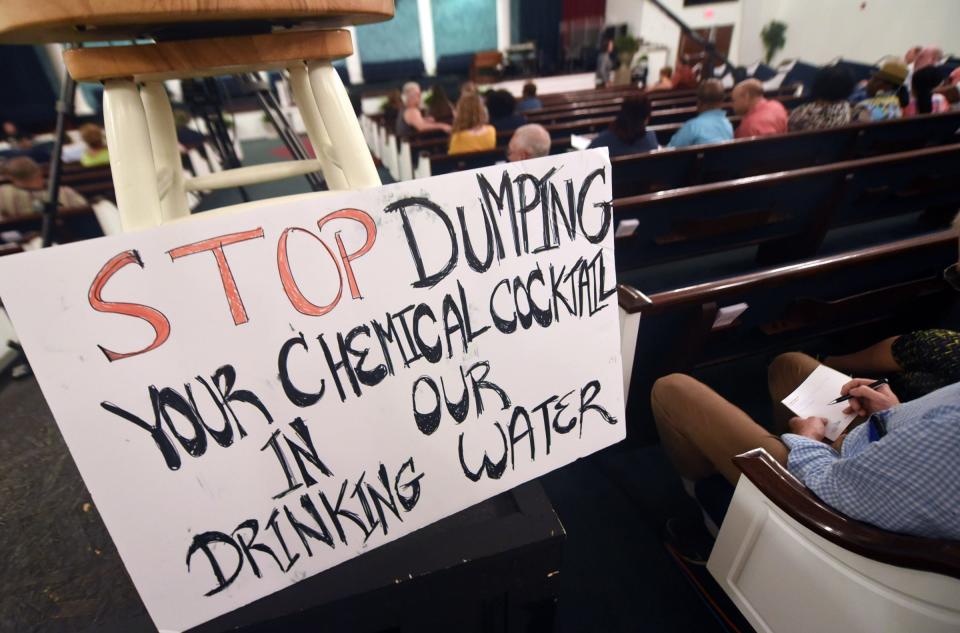
Donovan never imagined she’d be battling corporations and government agencies and planning national conferences. She never imagined speaking to large groups, organizing protests or even having the understanding of biochemistry that she now has (Donovan hated chemistry and science class when she was in school).
In addition to the work Donovan continues to do at the national level, she and Clean Cape Fear have set up three milestones they’re striving to achieve with the GenX crisis. The organization wants to end all PFAS exposure, get access to comprehensive health studies so residents can understand the risks they face and continue to hold polluters accountable for the damage they cause.
“It's provided me the opportunity to see that when you feel like you're presented with an impossible challenge, something as impossible as a multi-billion-dollar chemical company that has all the resources, all the power, that with the snap of a finger can change the existence of this region… just because they have the money, that doesn’t necessarily mean they have the power,” Donovan said.
More:Chemours claims to be 'good neighbor' in recent ad campaign, angers North Carolinians
This article originally appeared on Wilmington StarNews: Emily Donovan with Clean Cape Fear takes on companies over GenX

